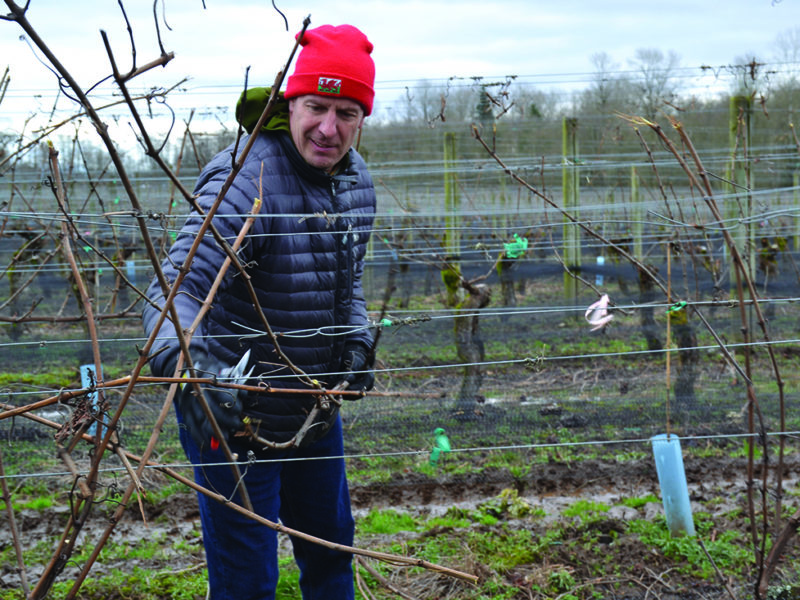VICTORIA – The grandfathering period for secondary residences in the Agricultural Land Reserve for immediate family has been extended until the end of the year as the province commences yet another consultation with farmers.
The province moved to grandfather secondary homes for family in the ALR last July, recognizing that people had been taken unawares by new regulations under Bill 52 that took effect February 22, 2019.
“We’ve listened and have given people a bit more time to get their permits in place,” BC agriculture minister Lana Popham said at the time.
The grandfathering period gave landowners until February 22, 2020 “to obtain all the required permits and authorizations to place a manufactured home for immediate family on their property.”
Now, that deadline has been extended once more, until December 31, while the province launches a new consultation to guide its next steps. The new consultation, which runs until April 17, follows a public engagement last fall that included eight public meetings, several bilateral sessions with stakeholder groups and an online survey completed by 1,832 people.
The process led Popham to announce last November that her staff was considering letting landowners in the ALR have a second home without the need for the Agricultural Land Commission’s permission.
The new consultation will garner feedback on that possibility.
“Under the proposal, a small secondary residence would be available for farm-workers, family members or anyone else, provided there is local government approval,” says Popham.
An intentions paper released as part of the consultation indicates that those small residences won’t be limited to manufactured homes, as under the previous iteration of the regulations. Instead, they could include garden suites, guest houses, carriage suites or units above an existing building.
The new options won’t affect the maximum size of the principal residence, limiting the total residential floorspace for family members to 5,382 square feet (500 square metres).
In addition, the ALC will remain the decision-maker for additional residences for farm use in the ALR. “Any new permitted secondary residences should be registered with the ALC for long-term land-use planning purposes,” the province states.
Unlike last fall’s consultation, and the work of the nine-member advisory committee Popham appointed in 2018 to suggest ways to revitalize the ALR, the current engagement process will take place entirely via
e-mail. An online survey has not been established, nor are any public meetings scheduled. People are asked to provide feedback to [ALR_ALCrevitalization@gov.
bc.ca].
The province says the intentions paper was drafted with input from the Union of BC Municipalities, the ALC and the BC Agriculture Council (in that order), and responds to feedback received during both last fall’s consultations as well as the advisory committee’s work.
A 14-page summary report of last fall’s discussions highlighted the importance of having additional residences on farm properties, both for economic as well as personal reasons.
“The engagement process highlighted that there are economic benefits to multi-generational farming operations, and that having a secondary residence can be an important part of an overall farming succession plan,” the report states.
In terms of size, the report notes that those who participated in the engagement process – 51% of whom were farmers – generally supported limiting principal residences within the ALR to 500 square metres.
“Others expressed the need for secondary dwellings for situations they felt may not be considered ‘farm use’ by the ALC. This included various housing purposes such as for aging farmers, seasonal farm workers, multiple families who wish farm the land together, as well as for supplementary income through rentals,” the report continued in a summary of feedback specifically regarding provisions for secondary residences. “Confusion and frustration were expressed regarding the requirement that manufactured homes receive approval from the ALC as these houses were not viewed as negatively affecting farm land.”
To bridge the divide between limiting development and allowing a degree of flexibility, many people supported the idea of a home plate, “whereby there is a maximum percentage or area of the land that can be covered with hard surfacing, which can be used to build whatever the land owner feels necessary to farm.”
The initial response to the formal proposal was favourable, but cautious.
Meghan McPherson, a Comox Valley landowner caught out by the regulation change last February, has spent the past year rallying critics of what the government’s been doing. She welcomed the intentions paper, but noted that it’s not the final word on the matter.
“The modular extension will provide relief to many families still caught by the changes brought in from Bill 52,” says. “It will interesting to see how the policy work on residential flexibility will unfold. Nothing is set in stone yet, but things seem to be moving in a positive direction. I strongly encourage people to continue to engage in the process.”
While the new announcement extends a grandfathering period intended to accommodate those caught by its own policies, Popham couldn’t help but take a swipe at the BC Liberals.
“We recognize that rules by the previous government do not reflect the needs of British Columbians and as a result, we are proposing to allow more flexibility for small secondary residences,” she says.
That doesn’t sit well with Delta South MLA Ian Paton, co-critic for agriculture with the opposition Liberals. He says the proposal is a case of back-tracking by the current government on changes that weren’t well thought-out in the first place.
“We’ve seen it before,” he said, speaking from Prince George where meetings with producers highlighted ongoing fallout from recent changes to the regulations governing the ALC and ALR.
“It’s another NDP move where they dream up these bills and policies and regulations, then there’s a massive outcry from the farming community and they backtrack.”


 Annual gala yields awards
Annual gala yields awards